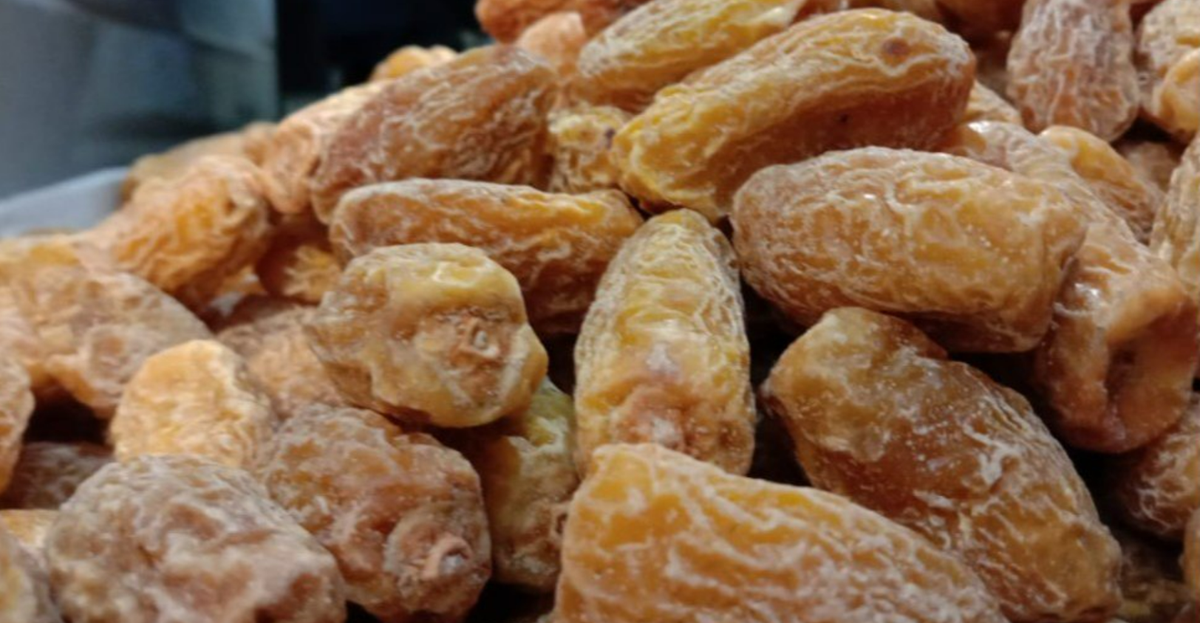Biratnagar: The previous government had imposed a ban on the import of yellow dates (chhokda), betel nut, and black pepper. While the ban on betel nut and pepper has since been lifted, the import of chhokda remains officially prohibited. However, markets are flooded with chhokda — far exceeding actual demand.
According to Biratnagar Customs Chief Umesh Shrestha, smuggled chhokda has filled eastern markets. “The import of chhokda is still banned, but it appears to be entering the market in large quantities through smuggling,” he said.
Trader Ram Subedi confirmed that the excessive supply has driven down prices.
“Chhokda that used to sell for around Rs 500 per kilogram in the past is now being sold between Rs 250 and Rs 400 depending on quality,” he said. “We’ve heard the import ban is still in place, yet the market is full of chhokda — that’s why prices have dropped.”
It has become increasingly clear that dried fruits and similar products are being smuggled in large volumes, while law enforcement agencies remain silent.
Customs data shows that not only the banned chhokda, but also cashews and raisins — which are legally allowed for import — are entering Nepal in minimal quantities through official customs points. Yet, the market is flooded with these goods.
“As goods in high demand during Tihar are entering mainly through smuggling routes, the customs points have become unusually quiet,” said Customs Chief Shrestha.
He added that even decorative lights used during Tihar have not been officially imported through Biratnagar Customs. “The lights imported via the Birgunj border alone cannot supply the markets in Biratnagar and Koshi,” he said. “This clearly indicates widespread smuggling.”
According to customs statistics, only small quantities of cashews, cardamom, and coconuts have officially entered through the Biratnagar checkpoint.
Since the start of the current fiscal year (mid-July), only 2,000 kilograms of cashews have been imported — a 96 percent drop compared to last year’s 54,610 kilograms.
Imports of cardamom have risen by about 11 percent, from 1,980 kilograms last year to 2,197 kilograms this year.
Incense imports have fallen sharply — from 105,202 kilograms last year to just 43,759 kilograms this year, a decrease of about 58 percent.
Fruit imports, however, have increased significantly.
Orange imports jumped from 11,020 kilograms last year to 32,320 kilograms this year — a rise of roughly 193 percent.
Apple and pear imports surged from 1,170,489 kilograms to 3,563,354 kilograms — up about 204 percent.
Coconut imports rose from 20,080 kilograms to 26,395 kilograms — a 31 percent increase.
Conversely, candle imports, which usually peak during Tihar, have declined — from 285 kilograms last year to just 190 kilograms this year.
“When the government bans an item, that very item becomes more available in the market,” said one trader. “Because smuggled goods enter without paying customs duties, VAT, or excise taxes, they are sold cheaply — undercutting legal trade.”



Comment Here